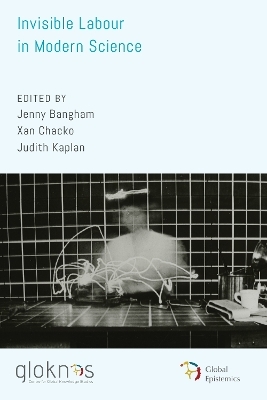
Invisible Labour in Modern Science
Rowman & Littlefield (Verlag)
978-1-5381-7156-1 (ISBN)
Invisibility can be unjust; it can also be powerful. What is invisible to whom, and when does this matter? How do power structures built on hierarchies of race, gender, class and nation frame what can be seen? And for those observing science: When does the recovery of the ‘invisible’ serve social justice and when does it invade privacy? Tackling head-on the silences and dilemmas that can haunt historians, this book transforms invisibility into a guide for exploring the moral sensibilities and politics of science and its history.
Jenny Bangham is a Wellcome University Award Lecturer in the School of History, Queen Mary University of London, where she researches the politics, meanings, and practices of genetics. She is the author of Blood Relations: Transfusion and the Making of Human Genetics (2020), which explores the intimate connections between the infrastructures of blood transfusion and the development of human genetics. She is co-editor of the open access volume, How Collections End: Objects and Loss in Laboratories and Museums (2019). Xan Chacko is a lecturer in science, technology, and society at Brown University, whose research complicates narratives of scientific practices and knowledge. Her current book, The Last Seed: Botanic Futures in Colonial Legacies situates the emergence of cryogenic seed banking as a response to catastrophic species loss of plant life in the twentieth century. Judith Kaplan is a historian of the human sciences who teaches in the Integrated Studies Program at the University of Pennsylvania. She has published widely on topics from orientalism to sound studies and is currently completing a manuscript on Living Language and the Transformation of Linguistics, 1871–1918.
| Erscheinungsdatum | 09.01.2024 |
|---|---|
| Co-Autor | Elena Aronova, Jenny Bangham |
| Verlagsort | Lanham, MD |
| Sprache | englisch |
| Maße | 151 x 228 mm |
| Gewicht | 472 g |
| Themenwelt | Geisteswissenschaften ► Philosophie ► Erkenntnistheorie / Wissenschaftstheorie |
| Naturwissenschaften | |
| Sozialwissenschaften ► Politik / Verwaltung ► Politische Theorie | |
| ISBN-10 | 1-5381-7156-2 / 1538171562 |
| ISBN-13 | 978-1-5381-7156-1 / 9781538171561 |
| Zustand | Neuware |
| Haben Sie eine Frage zum Produkt? |
aus dem Bereich

![Was heißt Denken?. Vorlesung Wintersemester 1951/52. [Was bedeutet das alles?] - Martin Heidegger](/media/113619842)
